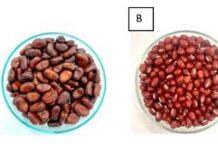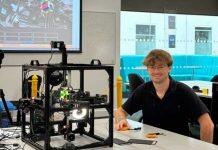Three internationally renowned researchers join McGill as Canada Excellence Research Chairs, bringing expertise in the fields of transient astrophysics, regenerative lung medicine, and metabolism and the brain to the University.


The results of the 2022 Canada Excellence Research Chairs competition were announced this morning at Simon Fraser University by the Honourable Terry Beech, Minister of Citizens’ Services. The announcement was made on behalf of the Honourable François-Philippe Champagne, Minister of Innovation, Science and Industry and Ted Hewitt, President of the Social Sciences and Humanities Research Council, and Chair of the Tri-agency Institutional Programs Secretariat Steering Committee.
Among the thirty-four new Canada Excellence Research Chairs (CERC), three are recruited to McGill. Darcy Wagner joins the Faculty of Medicine and Health Sciences as the Canada Excellence Research Chair in Lung Regenerative Medicine. Jason Hessels joins the Faculty of Science as the Canada Excellence Research Chair in Transient Astrophysics. Dana Small joins the Faculty of Medicine and Health Sciences as the Canada Excellence Research Chair in Metabolism and the Brain.
Among the most prestigious global research programs, Canada Excellence Research Chairs are valued at $8 million over eight years to support internationally renowned researchers and their teams and to establish ambitious research programs at Canadian universities. The CERC program is a Tri-agency initiative of the Social Sciences and Humanities Research Council (SSHRC), the Natural Sciences and Engineering Research Council, and the Canadian Institutes of Health Research.
Together, these three new chairs represent $24 million investment in research at McGill.
“The Canada Excellence Research Chairs program brings to Canada world-leading researchers working at the highest levels in their fields,” said Martha Crago, Vice-Principal, Research and Innovation. “McGill is grateful for the Government of Canada’s investments in groundbreaking research, and to strengthening Canada’s position as training ground for innovation in the health sciences and the pioneering field of astrophysics.”
Previously, McGill has been awarded three CERCs in the areas of green chemistry and human pain genetics. Vincent Mooser, Canada Excellence Research Chair in Genomic Medicine, continues his mandate at McGill.
Pioneering research in brain health, lung degeneration and transient astrophysics
McGill is home once again for Professor Dana Small, who joins the Faculty of Medicine and Health Sciences as the Canada Excellence Research Chair in Metabolism and the Brain. Small leads pioneering research aimed at uncovering the logic of human gut-brain communication in health and disease. “The biological imperative of optimizing energy acquisition, use and storage is a driver of brain evolution and behavior,” said Small. “The CERC award provides me with the resources to build a truly unique program to discover the logic governing the integration of the mind and metabolism. The ultimate goal is to explain the mechanisms linking neurological and metabolic disease.” She comes to McGill from Yale University’s Modern Diet and Physiology Research Lab and holds graduate degrees from McGill in Neuroscience and Clinical Psychology.
Professor Darcy Wagner joins the Faculty of Medicine and Health Sciences as the Canada Excellence Research Chair in Lung Regenerative Medicine. Her research is pushing boundaries by developing synthetic therapies for acute and chronic lung disease, which are the third and fourth leading causes of death in the world. Joining McGill from Lund University’s Wallenberg Centre for Molecular Medicine, Wagner aims to leverage recent advances in different disciplines such as biomaterials, stem cell biology, and advanced biomanufacturing. Her program will develop new manufacturing techniques based on 3D bioprinting approaches to improve the precision at which lung tissue can be generated.
Professor Jason Hessels joins the Faculty of Science as the Canada Excellence Research Chair in Transient Astrophysics. The emerging field of transient astrophysics provides a new dimension for understanding the grand story of how galaxies, stars, planets and, eventually, life are formed. “The Universe is continuously changing, even on human-observable timescales,” said Hessels. “Stars die in supernova explosions, black holes gobble up the gas around them, and neutron stars crash into each other. With this CERC award, I aim to uncover some of the most extreme events in the Universe, by watching how the sky changes on timescales of millisecond or less – hundreds of times faster than the blink of an eye.” Hessels comes to McGill from the University of Amsterdam’s Anton Pannekoek Institute of Astronomy and his appointment also marks a return to McGill, where he received his PhD.







































